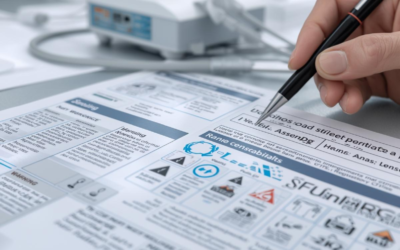Medical translation plays a vital role in precision medicine. As personalized treatments become more common, adapting technical content for multilingual audiences is no longer optional — it’s essential. Precision medicine isn’t just about genetics; it also requires clear communication between healthcare professionals and patients.
Why is medical translation crucial in personalized healthcare?
This field involves highly specialized content such as genetic variants, biomarkers, and customized treatment plans. Poor translation can lead to clinical errors, patient confusion, and poor treatment adherence.
Furthermore, these materials must be understood by diverse audiences — from researchers and physicians to patients who may not have scientific training but need to understand the risks and benefits of their treatment.
Key strategies for effective medical translation in precision medicine
- Terminological accuracy and cultural adaptation
It’s not enough to translate terms literally. Content must be tailored to the clinical and cultural context of each audience. - Interdisciplinary collaboration
Translators must work with geneticists, oncologists, and science communicators to ensure high-quality, accurate messaging. - Accessible language without losing precision
Scientific rigor must be preserved, but language should be clear, concise, and easy to understand. - Regulatory compliance
Translations must meet local and international standards, particularly when involving informed consent or clinical reports.
Conclusion
Medical translation in precision medicine is both a technical and ethical task. A well-done translation empowers patients to make informed decisions and supports better health outcomes. At SumaLatam, we help transform complex medical content into accessible, accurate, and culturally appropriate materials for global audiences.





